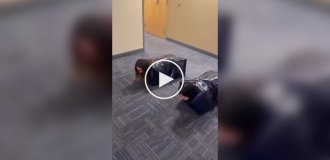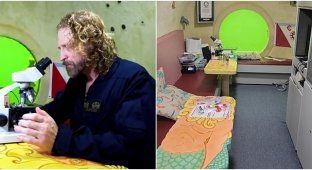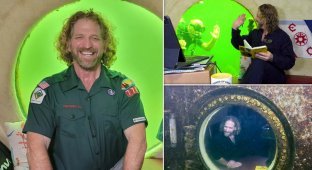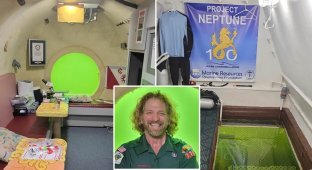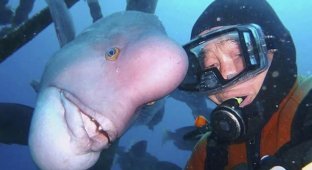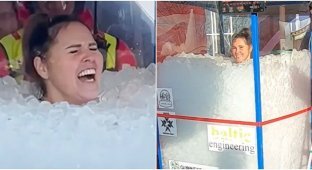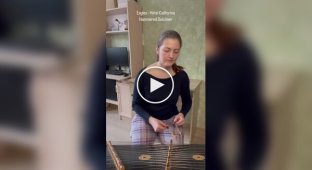Scientist claims 100 days underwater made him 20 years younger (6 photos)
Joseph Dituri, a former US Navy diver turned physician and researcher, spent a record 100 days in a special underwater capsule in high-pressure conditions a year ago. He studies the effects of hyperbaric oxygen therapy on the human body and the healing properties of oxygenation. According to Dituri, the result of the experiment exceeded all his expectations. 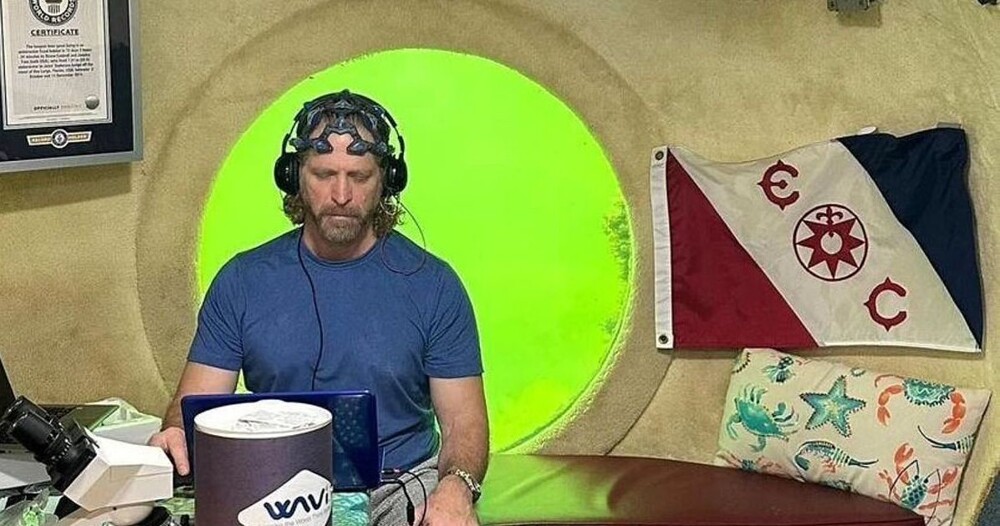
From March 1 to June 9, 2023, Dr. Dituri lived underwater for a record 100 days, in part to raise awareness of his life-saving research. To study the human body's response to prolonged exposure to extreme pressure, he spent time 9 meters below the surface of the water. Dituri was under the supervision of a team of doctors who monitored his health. He underwent regular psychological and medical tests, including blood tests, ultrasounds, electrocardiograms and stem cell testing.
The scientist assumed that as a result of such a long stay in conditions of high pressure, his health would improve due to the process of oxygenation (increased blood saturation with oxygen). He based his theory on findings from a study in which cells exposed to increased pressure doubled in size within five days. This suggests that increased blood pressure may help a person live longer and prevent diseases associated with aging. And the calculations were completely justified.
At the end of the experiment, blood tests showed a 50 percent reduction in all inflammatory markers in his body, 17 times more stem cells than before, and longer telomeres, structures on chromosomes thought to be associated with longer life. And some of the benefits are still with them, nine months after returning to land. According to Dituri, the aging process of his body was reversed at the cellular level. 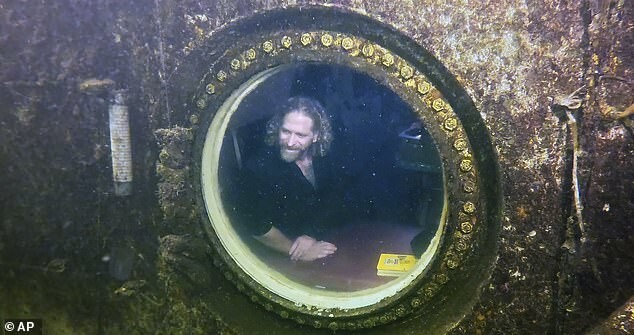
“I’m 56 years old now. My external (biological) age was 44 years. When I came out of the water, my outer age was 34,” says Dituri. “So my telomeres got longer.” I actually became younger when I was underwater."
At the end of chromosomes are telomeres, which resemble the plastic tips on the ends of shoelaces. Every time your cells divide, telomeres become shorter. When they run out, the chromosome unravels and the cell dies. The idea is to keep them long and help cells live longer, slowing down the overall aging process.
This idea of longevity has not yet been proven in human experiments, but other researchers are working on gene therapy aimed at lengthening telomeres in hopes of slowing down the aging process.
Dituri says his telomeres aren't as long as they used to be, but they're still longer than before.
He also reported that his cognitive abilities improved while underwater.
Dituri believes that his age-related changes were caused by exposure to high pressure conditions - a hyperbaric environment.
In modern medicine, a hyperbaric chamber usually contains pure oxygen, but in the case of underwater pressure the mixture is closer to ordinary air. The health benefits of hyperbaric chambers have been well documented since a British physician built the first such chamber in 1662—more than 100 years before the discovery of oxygen. Medical literature suggests that some people have benefited greatly from hyperbaric therapy.
In his underwater capsule, Dituri took numerous readings about his physical health, including encephalography (EEG) recordings. 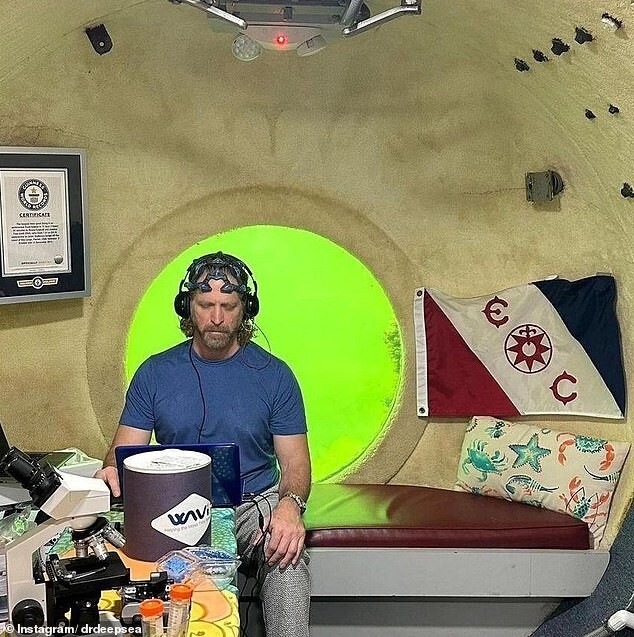
In a recent interview, Dituri said that his cells still show residual signs of anti-aging. 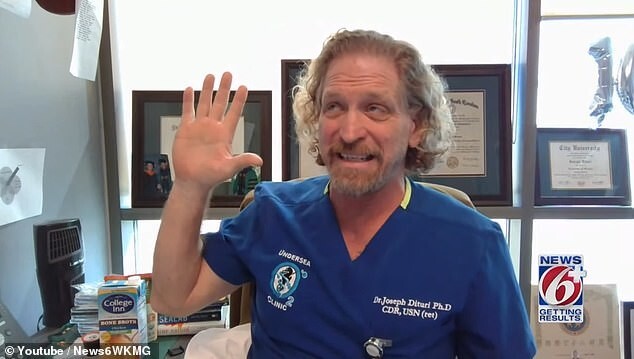
Although further research is needed, hyperbaric therapy has been shown to improve wound healing and reduce inflammatory markers since its inception. Recent studies have shown that hyperbaric oxygen therapy can reduce the rate of blood cell death and even lengthen telomeres.
Inflammatory molecules have been linked to autoimmune diseases such as Crohn's disease and ulcerative colitis, and even long-term COVID. Reduced levels of inflammatory markers are associated withreducing the risk of cancer, improving cognitive function and reducing the risk of cardiovascular disease.
When Dituri came out of the capsule, he was about 2 cm shorter than when he went inside. 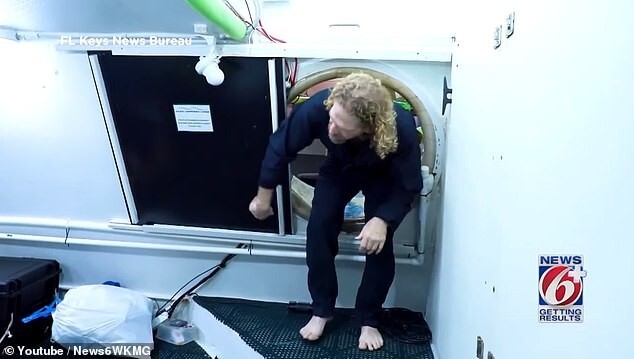
According to Dituri, as a result of the experiment he had 17 times more stem cells than he had before being under water. Stem cells can develop into any other type of cell in the body, which is why they are associated with regenerative medicine.
The Dituri effect manifested itself after 100 days of round-the-clock exposure to a hyperbaric environment. Conventional hyperbaric oxygen therapy is given at one-hour intervals for anywhere from a few days to a couple of months. However, most of the studies showing its health benefits were conducted in such conditions, so you don't have to isolate yourself under the ocean to reap the anti-aging benefits.
Dituri is careful to note that more research is needed to confirm the purported anti-aging effects of hyperbaric therapy 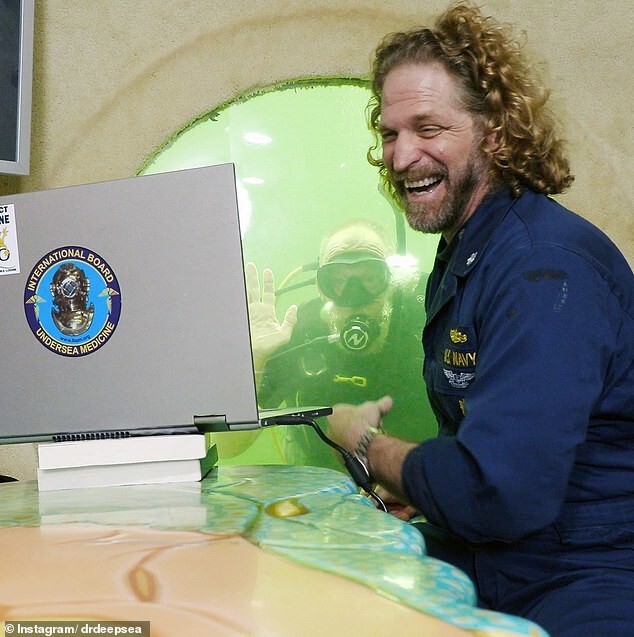
Dituri makes some miraculous claims about hyperbaric therapy, but is cautiously optimistic about it.
“The research is not finished yet, but we are working on it,” he says. There are a lot of things that hyperbaric oxygen therapy can't cure, but there are some good ways to use it."
